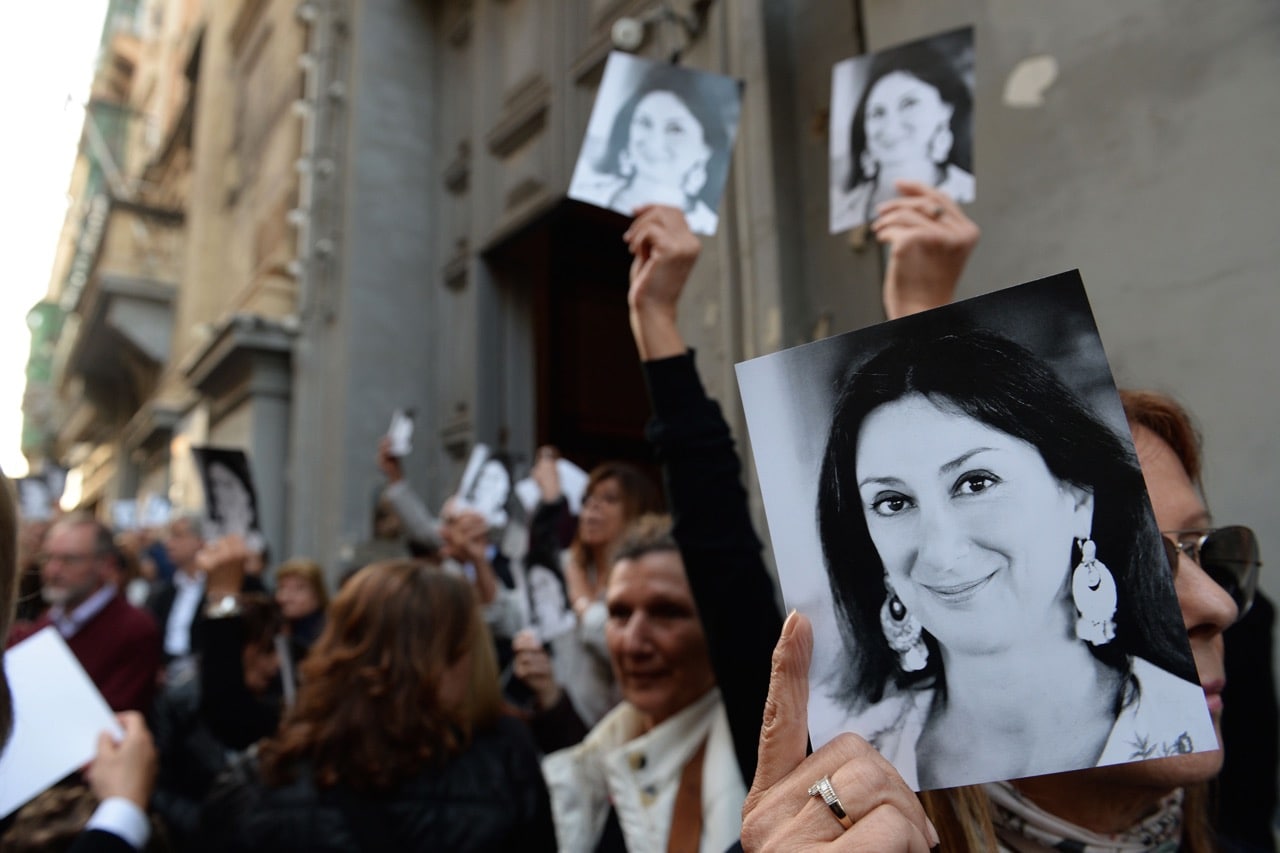Andrew Caruana Galizia, son of journalist Daphne Caruana Galizia, spoke about the situation of violence against women journalists in the context of a session with the UN Special Rapporteur on Violence against Women at the UN Human Rights Council 38th Special Session.
UN Human Rights Council 38th Special Session
Item: 3 Interactive Dialogue with the UN Special Rapporteur on Violence against Women
By Andrew Caruana Galizia, son of Daphne Caruana Galizia
Mr President,
Today I speak to you concerning the grave situation of violence against women journalists, in particular about the case of my mother, Daphne Caruana Galizia, Malta’s leading investigative journalist, who was assassinated on 16 October last year.
Throughout her 30-year career my mother was subjected to relentless harassment and threats characteristic of the violence experienced by women journalists around the world. What is perhaps most surprising is that this occurred in Malta, in the heart of the European Union where we expect that such spectacular violence against a woman journalist could never happen, let alone be tolerated with impunity and encouraged by those in power.
Because of her work exposing corruption at the highest levels, my mother was dehumanized in the media and by politicians and branded a witch. In the early years, she received threats by phone; later this became a concerted campaign of offline and online harassment. My father and my brothers and I were targeted in an attempt to silence her. Our pet dogs were killed, our home was set alight. Over 60 lawsuits – for both criminal and civil defamation — were filed against her. Before her death, my mother was subjected to systematic and escalating threats by government officials and their aides and associates. Unprotected by Malta’s institutions, including the police force and the courts, killing her was not only desirable but it became conceivable.
During her lifetime, my mother feared that the sustained attacks on her had frightened away other women from becoming investigative journalists. We believe that my mother’s assassination was designed to send a clear signal to any other journalist who would attempt to report on the extremely sensitive corruption issues she was exposing. Impunity in her case and the corruption upon which she was reporting has emboldened abuse against other women. Since her murder, female human rights defenders and investigative journalists, Tina Urso and Caroline Muscat who campaign for justice in my mother’s case and against the corruption upon which she was reporting have been targeted in a state-sanctioned, coordinated online misogynistic hate campaign in full view of the authorities that are meant to investigate such abuse. As was the case for my mother Daphne Caruana Galizia, there has been no official response to the death threats received by these women human rights defenders – despite clear evidence of the perpetrators — pointing to further major concerns relating to the rule of law in Malta.
It is increasingly clear that the independence, impartiality and effectiveness of the investigation into my mother’s assassination are now in grave danger. Malta’s constitutional court last week ordered that the police officer leading the investigation be removed from the investigation on account of his close ties to subjects of my mother’s reporting. An important decision, but one that the government has appealed.
We urge this Council, its members and observer states, to call on the Maltese authorities to:
– Ensure a full, independent, impartial and effective investigation into the assassination of Daphne Caruana Galizia and the crimes upon which she was reporting;
– Ensure Malta fulfils its obligations to respect, protect and fulfil its commitments to combat violence against women human rights defenders and journalists.
Thank you Mr. President
The following NGOs and professional organisations share the views expressed in this statement:
